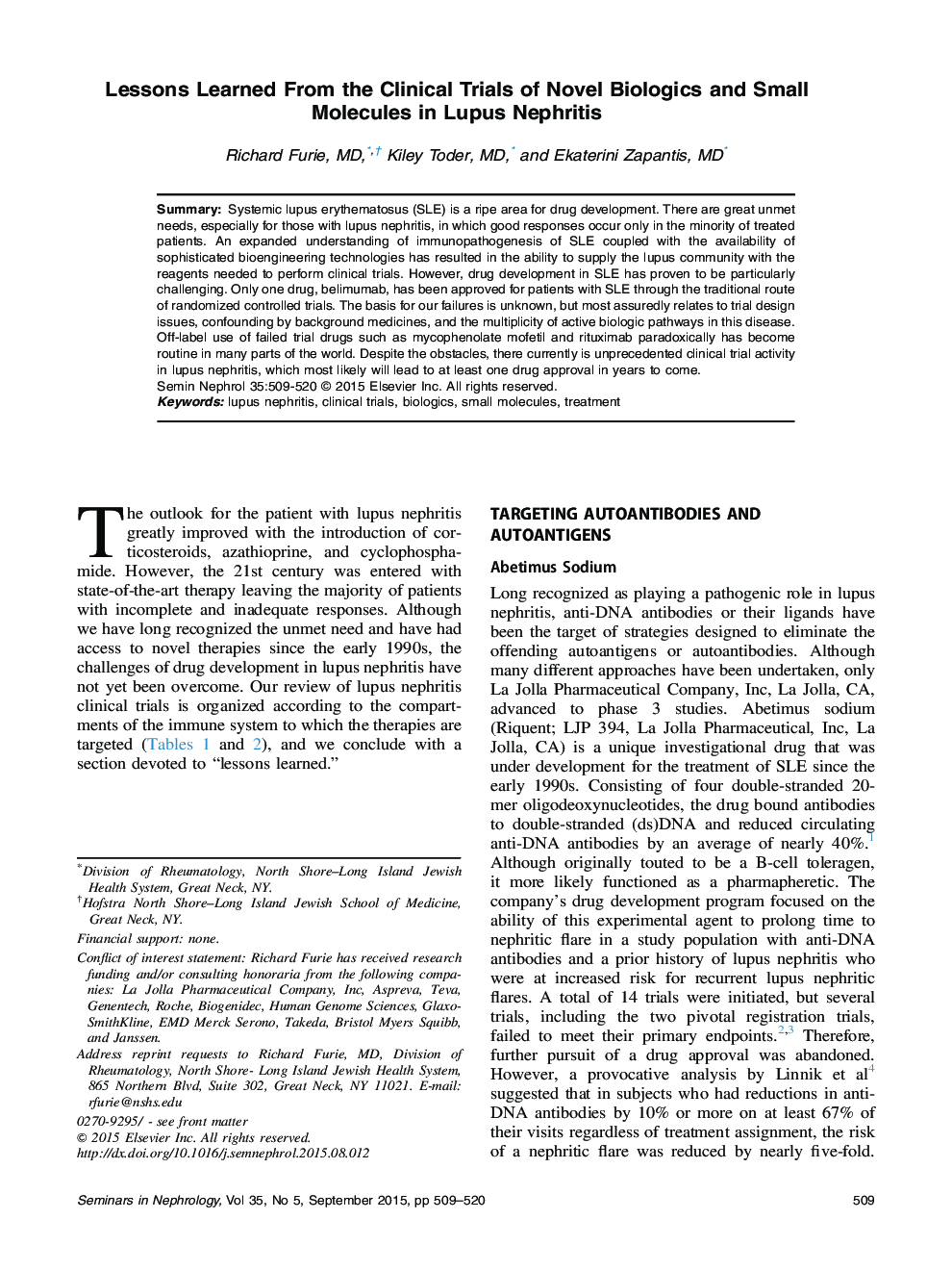| Article ID | Journal | Published Year | Pages | File Type |
|---|---|---|---|---|
| 3896287 | Seminars in Nephrology | 2015 | 12 Pages |
SummarySystemic lupus erythematosus (SLE) is a ripe area for drug development. There are great unmet needs, especially for those with lupus nephritis, in which good responses occur only in the minority of treated patients. An expanded understanding of immunopathogenesis of SLE coupled with the availability of sophisticated bioengineering technologies has resulted in the ability to supply the lupus community with the reagents needed to perform clinical trials. However, drug development in SLE has proven to be particularly challenging. Only one drug, belimumab, has been approved for patients with SLE through the traditional route of randomized controlled trials. The basis for our failures is unknown, but most assuredly relates to trial design issues, confounding by background medicines, and the multiplicity of active biologic pathways in this disease. Off-label use of failed trial drugs such as mycophenolate mofetil and rituximab paradoxically has become routine in many parts of the world. Despite the obstacles, there currently is unprecedented clinical trial activity in lupus nephritis, which most likely will lead to at least one drug approval in years to come.
